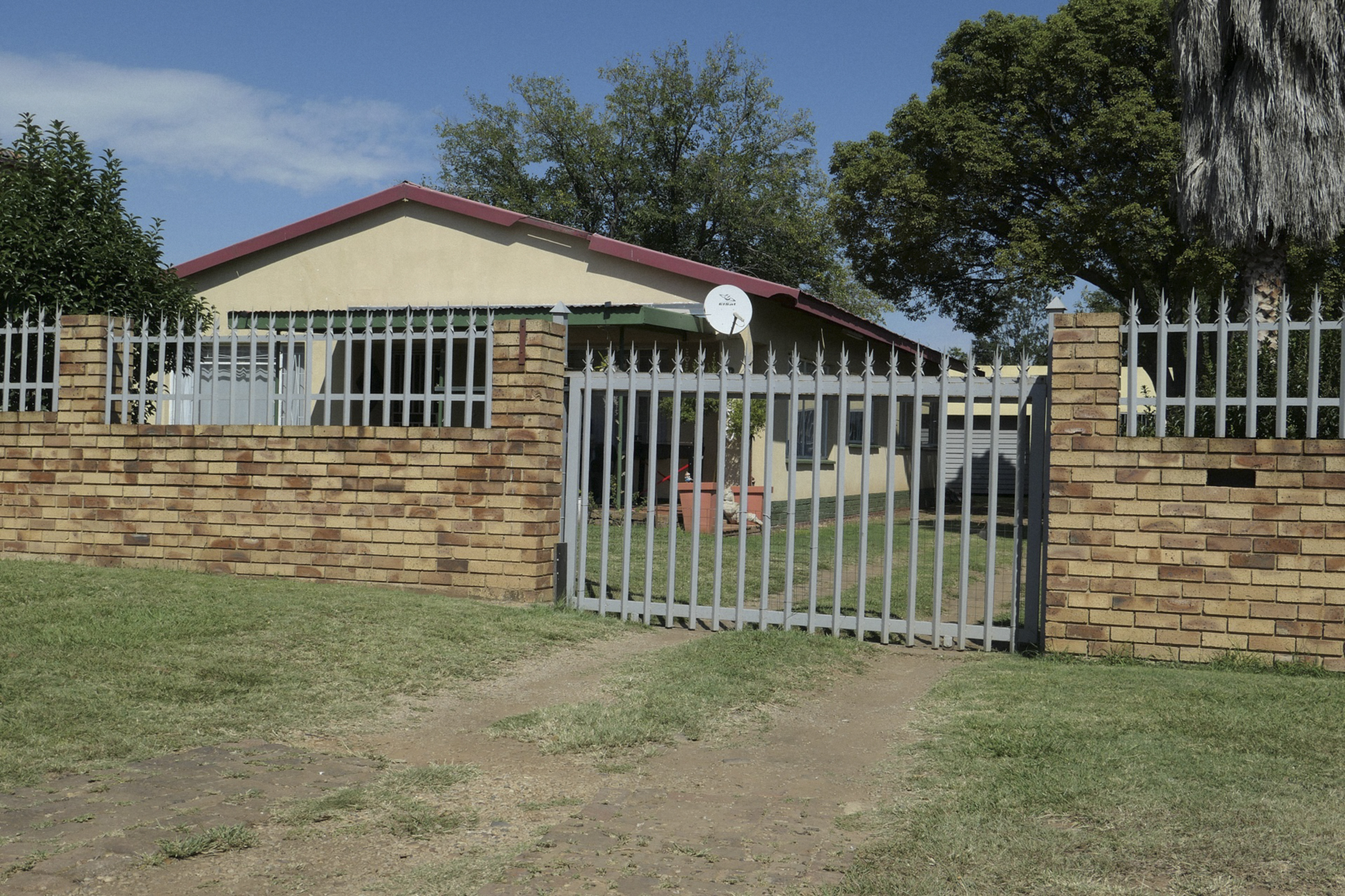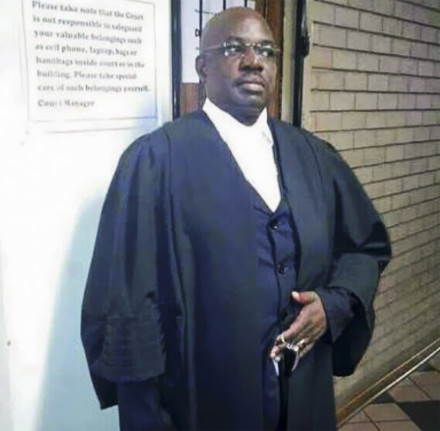10 January 2018
South Africa
Victor Mabunda
Profession
Criminal Justice
Motive
Governance targeting
Whistleblowing


Adolfo Olivas


Ahmed Divela


Amit Jethwa


Artan Cuku


Babita Deokaran


Bayo Ohu


Berta Cáceres


Bhupendra Veera


Bill Kayong


Boris Nemtsov


Boško Buha


Chai Boonthonglek


Charl Kinnear


Chut Wutty


Chynybek Aliev


Cihan Hayirsevener


Daphne Caruana Galizia


Darío Fernández


Derk Wiersum


Deyda Hydara


Édgar Quintero


Edmore Ndou


Edwin Dagua


Federico Del Prete


Fernando Villavicencio


Gezahegn Gebremeskel


Gilles Cistac


Habibur Mondal


Igor Alexandrov


Jacob Juma


Ján Kuciak


Javier Valdez


Joannah Stutchbury


José Ángel Flores


Jules Koum Koum


Kem Ley


Luis Marroquín


Mahamudo Amurane


Marcelo Rivera


María Elena Ferral Hernández


Marielle Franco


Milan Pantić


Milan Vukelić


Muhammad Khan


Nelson García


Nihal Perera


Oliver Ivanović


Orel Sambrano


Perween Rahman


Peter R. de Vries


Rajendra Singh


Salim Kancil


Sandeep Sharma


Sikhosiphi Radebe


Slaviša Krunić


Soe Moe Tun


Victor Mabunda


Virgil Săhleanu


Wayne Lotter


Yuniol Ramírez


Zezico Guajajara
10 January 2018
South Africa
Profession
Criminal Justice
Motive
Governance targeting
Whistleblowing
Of the six Mabunda children who grew up in Zava, a village in South Africa’s Limpopo province, it was Victor, the second born, who was his father’s favourite. ‘Victor was book-smart; he made our dad proud,’ Chris Mabunda recalls of his older brother.
Although Victor was 10 years older than him, Chris remembers when, back in the late 1980s, Victor made the decision to leave Zava to pursue a law degree at the University of Zululand. It was a bittersweet occasion for their father, who beamed for a son who was set to be a lawyer but was saddened by the fact that the young man would now be a 10-hour drive away from home.
Victor Mabunda certainly did not disappoint his father. After getting his degree, he joined the South African Department of Justice and Constitutional Development in 2000, working first in Pretoria before being promoted to the position of magistrate in Cullinan, a small town some 50 kilometres from the capital.Mabunda worked for the department for 18 years and was admitted as an advocate in 2016.
But on a hot summer’s day in January 2018, devastating news reached the village of Zava. And it was Chris, who lives in Johannesburg, who had to break the news to his father, mother and extended family. His beloved older brother had been killed in the driveway of his home in Bronkhorstspruit. Mabunda’s car had not quite made it back to the lock-up garage at the back of the property when he was shot four times in broad daylight. It was the bullet that went through his chest that killed him. The assailants took nothing, and by the time a neighbour had rushed out to find out what was happening, they had fled. The car had drifted into a gutter downpipe; Mabunda was slumped in the driver’s seat. He had turned 50 three days earlier.
In the days after the shooting, what had at first seemed like a violent robbery or carjacking began to look like something different. Police detectives disclosed that they were investigating Mabunda’s killing as a deliberate hit. He had been assassinated, they said.
Addressing the crowd gathered at Mabunda’s memorial service, Advocate Matric Luphondo, the North Gauteng Chief Prosecutor, spoke frankly about how criminals are working to cripple South Africa’s justice service by murdering officers of the court. ‘Criminals are now transformed,’ he said. ‘They are intimidating all of us in the country, if not the world; they intimidate by silencing us and killing us magistrates.’
According to the Sowetan newspaper, police believe that Mabunda had found himself in the crosshairs of a criminal syndicate involving corrupt correctional services officials who smuggled drugs to prisoners at the Baviaanspoort Correctional Services, a medium-security prison on the outskirts of Pretoria.
Implicated in Mabunda’s shooting were two of the prison’s wardens, Thomo Ngoato and Paulos Fourie, as well as Thato Maringa, a former inmate at Baviaanspoort who was out on parole at the time of the shooting.
Mabunda had been presiding over a case brought against Ngoato for contravening the Drugs and Drug Trafficking Act. Ngoato had been charged following a search of his car in January 2017, which turned up nearly 200 grams of marijuana. He was subsequently suspended from duty. The date on which Mabunda was to rule on Ngoato’s case had just been set.
Chris heard from his brother’s colleagues that on the day of his murder, Mabunda had reportedly told colleagues that he had been approached and offered a bribe. And, later, Luphondo revealed that some of Mabunda’s colleagues associated with the case had received death threats in the days after the shooting. Today, Chris still believes his brother became a target because he refused to take a bribe – the kind of corruption Mabunda couldn’t tolerate.

Victor Mabunda’s home in Bronkhorstspruit, South Africa, where he was murdered

Police were able to connect all three men – Fourie, Maringa and Ngoato – to the crime. The trial had been expected to get under way at the North Gauteng High Court on 25 March 2019 but was postponed until 7 August. Police have also confirmed that they are looking for a fourth suspect in connection with the killing.
The trial delay has been agonizing for Chris and the Mabunda family. Waiting for the full details to emerge and for the fourth suspect to be arrested has brought further confusion and pain to the family, not least Mabunda’s four children. And the uncertainty surrounding his death has left a sense of disquiet. ‘I will always have doubt in my heart as to what exactly happened,’ said Chris.
One of the family members most affected by the death of Victor was his father, with whom he had a relationship of mutual affection and respect: ‘One month after Victor was killed, our father died. The old man couldn’t take it,’ said Chris. ‘The thing is, Victor was in line to be the headman of the village one day because our eldest brother died over 20 years ago. It was expected that Victor would take over after my father.’
Chris said that the heartache of his brother’s death has been felt by more than just his family, friends and colleagues – it has left a gaping hole in Zava. The grief, uncertainty and social rupture are profound. Chris admitted that sometimes he dreads speaking to his mother or going home to visit her because he doesn’t always know what to say or do, especially as his brother had been responsible for so much of the family’s affairs over the last few years.
Chris said that Victor’s commitment to serve – his family, his village and his country – meant that he could be stubborn, but that this stubbornness was effectively channelled into keen leadership abilities. ‘He came from a family that was about leadership, about making tough decisions and knowing how to handle people – that was how he was in court and in his everyday life.’
Victor Mabunda was known to be a no-nonsense magistrate who did not tolerate bribery and corruption. Chris remembers how, during his long chats with Victor – which he misses with all his heart – his brother expressed a commitment to battling corruption through legal channels. ‘He wasn’t a politician, but he understood what corruption was doing to the country. He also always wanted to rectify a situation through the law. That’s why he was known to give harsh sentences.’


16 January 2019
Accra, Ghana
Ahmed Divela


23 August 2021
Johannesburg, South Africa
Babita Deokaran


20 September 2009
Akowonjo, Lagos State, Nigeria
Bayo Ohu


18 September 2020
Cape Town, South Africa
Charl Kinnear


16 December 2004
Kanifing, Gambia
Deyda Hydara


22 April 2017
Beitbridge District, Zimbabwe
Edmore Ndou


21 April 2018
Johannesburg, South Africa
Gezahegn Gebremeskel


3 March 2015
Maputo, Mozambique
Gilles Cistac


5 May 2016
Nairobi, Kenya
Jacob Juma


15 July 2021
Kiambu, Kenya
Joannah Stutchbury


4 November 2011
Yaoundé, Cameroon
Jules Koum Koum


4 October 2017
Nampula, Mozambique
Mahamudo Amurane


22 March 2016
Mbizana, Eastern Cape, South Africa
Sikhosiphi Radebe


16 August 2017
Dar es Salaam, Tanzania
Wayne Lotter